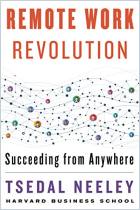Únase a getAbstract para acceder al resumen.

Únase a getAbstract para acceder al resumen.
Robert Glazer and Mick Sloan
How to Thrive in the Virtual Workplace
Simple and Effective Tips for Successful, Productive, and Empowered Remote Work
Sourcebooks, 2021
¿De qué se trata?
Embrace the appropriate tools, systems and culture to support your organization’s switch to remote work.
Recommendation
In the post-COVID workplace, many organizations chose to keep their work teams remote. Leaders must embrace a cultural shift and adopt new systems and tools to support their teams, explains Robert Glazer, CEO of Acceleration Partners marketing agency. Writing in collaboration with author Mick Sloan, Glazer details how to maximize employee effectiveness, protect workers’ personal happiness and combat isolation when shifting to a virtual workplace. Companies that thrive in the “remote work revolution” will be those with the self-awareness to choose the approach that best serves their needs.
Summary
About the Authors
Founder and CEO of Acceleration Partners Robert Glazer hosts the Elevate Podcast and is a columnist for Forbes, Business Insider, Inc, Entrepreneur and Fast Company. Mick Sloan is a writer and editor who focuses on creating content about career development and personal achievement.





















Comment on this summary